4 min to read
By Bruno Gavino, CEO, Codedesign
Google has introduced a new AI-powered chatbot feature in its search engine, aiming to modernize its core product and compete with AI-first rivals like OpenAI and Perplexity. EMARKETER
Digital Marketing Implications
The integration of AI chatbots into search signifies a shift in how users interact with search engines, moving towards more conversational queries. Marketers need to adapt their SEO strategies to accommodate this change, focusing on natural language and contextually rich content.
Action Steps:
-
Optimize for Conversational Queries: Adjust content to answer questions in a conversational tone, anticipating the types of queries users might ask.
-
Implement Structured Data: Use schema markup to help AI understand and present your content effectively.
-
Monitor AI Search Performance: Track how your content performs in AI-driven search results and adjust strategies accordingly.
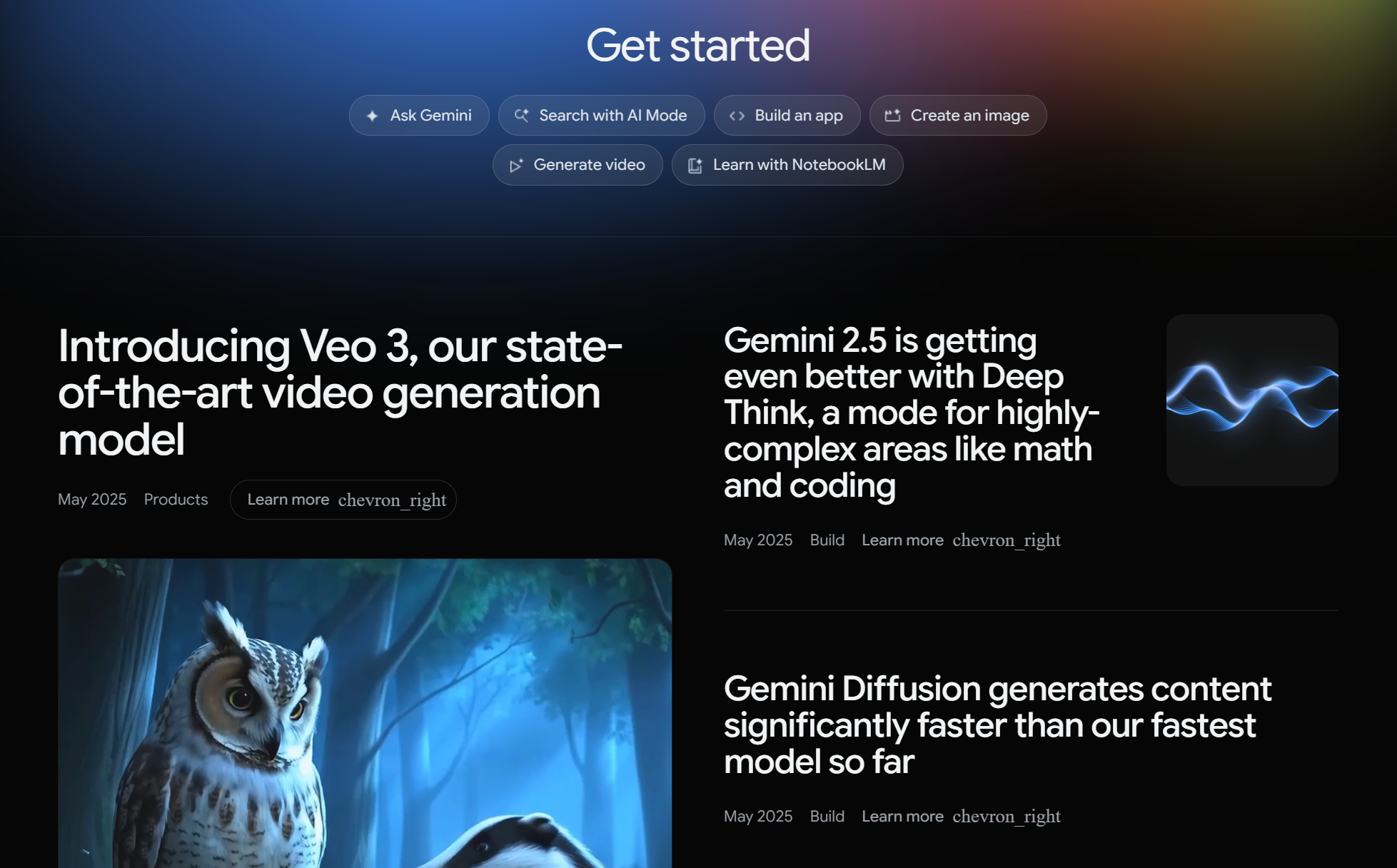
Google's AI Overviews Are Rewriting the SEO Playbook
When Google introduced AI Overviews—AI-generated summaries appearing at the top of search engine results—it marked a profound shift in how users interact with search and how marketers must adapt their strategies. These AI-generated answers reduce the need for users to click through to individual web pages, delivering quick, contextual information directly within the results page. This innovation redefines what it means to rank on Google.
Understanding AI Overviews and Their Impact
AI Overviews aggregate data from a variety of web sources, synthesizing an answer to user queries in real-time. When a user searches for something like "best laundry detergent for eczema," they are now more likely to see a brief paragraph summarizing recommended products and sources at the top—before they encounter ads or traditional organic results.
A recent eMarketer study found that clickthrough rates (CTR) drop by 34.5% on average when AI Overviews are present. This is a game-changer. Historically, marketers have focused on securing top organic rankings, assuming visibility equals traffic. That paradigm is eroding.
Example: Consider a health blog that previously ranked first for "natural remedies for migraines." With AI Overviews, users may receive a direct answer that cites Mayo Clinic, WebMD, and user forums—burying the health blog lower on the page, drastically reducing its traffic.
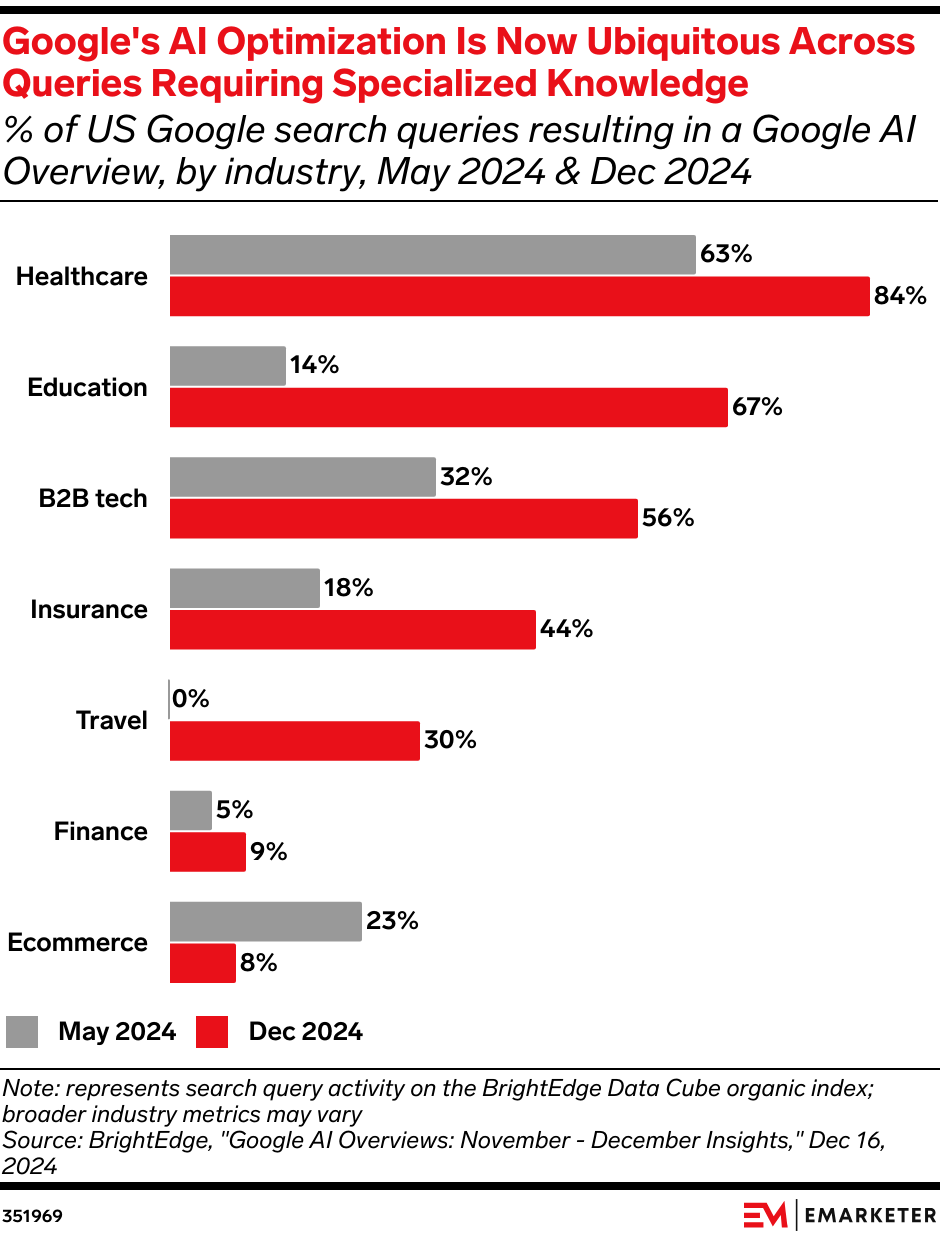
Strategic Takeaways for CMOs and Founders
To navigate this new terrain, marketers need to take a holistic and proactive approach:
-
Optimize for AI Overviews: Structure content using headers, concise paragraphs, and clear answers to commonly searched questions. Think like a bot: How can you make it easy for Google's AI to parse your page?
-
Focus on Branded Queries: AI Overviews are less likely to appear for branded searches. Strengthening brand recognition helps you retain high CTR for searches including your company or product name.
-
Embrace Multi-Channel Strategies: Organic search is no longer the sole battleground. Social media, email marketing, podcasts, and platforms like Google Discover are essential for maintaining engagement.
Example: A DTC skincare company now supplements their SEO efforts by investing in YouTube tutorials, which often get surfaced in Google's "Videos" carousel, bypassing the AI Overview bottleneck.
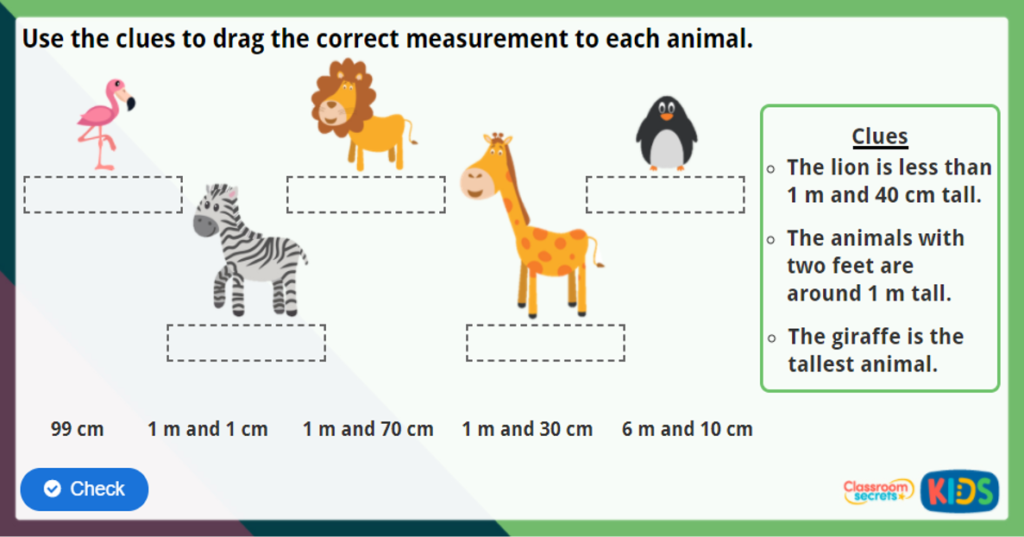
The Measurement Challenge
Measurement metrics are evolving. Traditional SEO KPIs like impressions and CTRs don’t fully capture performance in an AI Overview world. Because these overviews often answer questions without requiring a click, marketers must rethink how success is defined.
-
Engagement Over Clicks: Are users sharing your content? Are they returning via direct traffic? These are indicators that you’ve become a trusted resource—even if you're not the one getting the initial click.
-
Attribution Models Need Updating: Marketers should incorporate assisted conversions and multi-touch attribution to reflect the nuanced customer journey influenced by AI Overviews.
Example: A B2B SaaS company may see fewer direct clicks from organic search but notice a steady uptick in demo requests originating from users who first encountered them via an AI Overview. Their solution? Track referral paths and time-lag conversions.
The Risks of AI Overviews
While AI Overviews offer user benefits, they come with significant risks for marketers and publishers:
-
Loss of Publisher Revenue: Smaller content creators and media outlets may lose ad revenue as fewer users click through to their pages.
-
Opacity and Control: Google hasn’t fully disclosed how it selects sources for Overviews. Content creators have limited ability to opt in—or opt out.
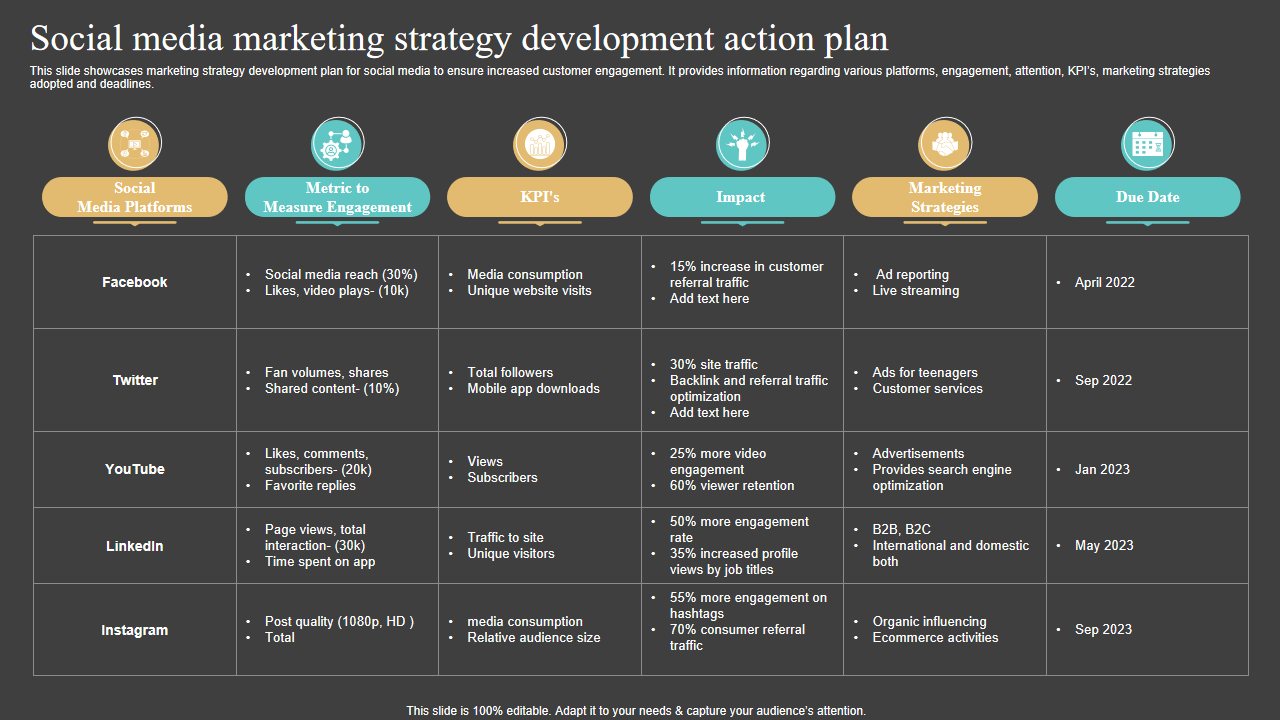
Action Plan and Future Outlook
The takeaway? AI Overviews are not just another feature—they are a shift in search behavior and visibility economics. Here’s how marketers can respond:
-
Conduct a content audit to identify pages that could rank in AI Overviews.
-
Use schema markup to help search engines understand your content.
-
Create FAQ sections to address direct queries.
-
Track zero-click performance via branded search volume and engagement metrics.
Example: A marketing agency revamped its blog posts with question-based headers and summary boxes. Within weeks, several were featured in AI Overviews, restoring lost visibility.
Lightning Round:
-
Trend to Watch? Zero-click searches becoming the norm.
-
Overrated Metric? Clickthrough rate (CTR).
-
Underrated Tactic? Schema markup and FAQ optimization.
-
Platform to Prioritize? Google Discover.
-
Biggest Risk? Failing to diversify traffic sources.
Bruno Gavino leads Codedesign, a global digital marketing agency helping companies scale demand with balanced, data-driven strategies.
 |
Thoughts by Bruno GavinoBruno Gavino is the CEO of Codedesign, a Lisbon-based digital marketing agency, with offices in Boston, Singapore, and Manchester (UK). He plays a pivotal role in shaping the agency's growth and direction, particularly in the realm of digital marketing. Codedesign has built a strong team of dedicated professionals, including marketers, developers, and creative thinkers, with a mission to help businesses grow online. Bruno's expertise extends to various aspects of digital marketing, and he has been active in sharing his insights on the impact of significant global events on the digital marketing landscape. His contributions to the field extend beyond his role at Codedesign. Bruno Gavino is known for his broad perspective on digital strategies and innovative solutions that drive the company's vision. |
 |
CodedesignCodedesign is a digital marketing agency with a strong multicultural and international presence, offering expert services in digital marketing. Our digital agency in Lisbon, Boston, and Manchester enables us to provide market-ready strategies that suit a wide range of clients across the globe (both B2B and B2C). We specialize in creating impactful online experiences, focusing on making your digital presence strong and efficient. Our approach is straightforward and effective, ensuring that every client receives a personalized service that truly meets their needs. Our digital agency is committed to using the latest data and technology to help your business stand out. Whether you're looking to increase your online visibility, connect better with your audience, get more leads, or grow your online sales. For more information, read our Digital Strategy Blog or to start your journey with us, please feel free to contact us. |
CodeDesign is leading:
- Digital Agency
- Digital Marketing Agency
- AI Marketing Agency
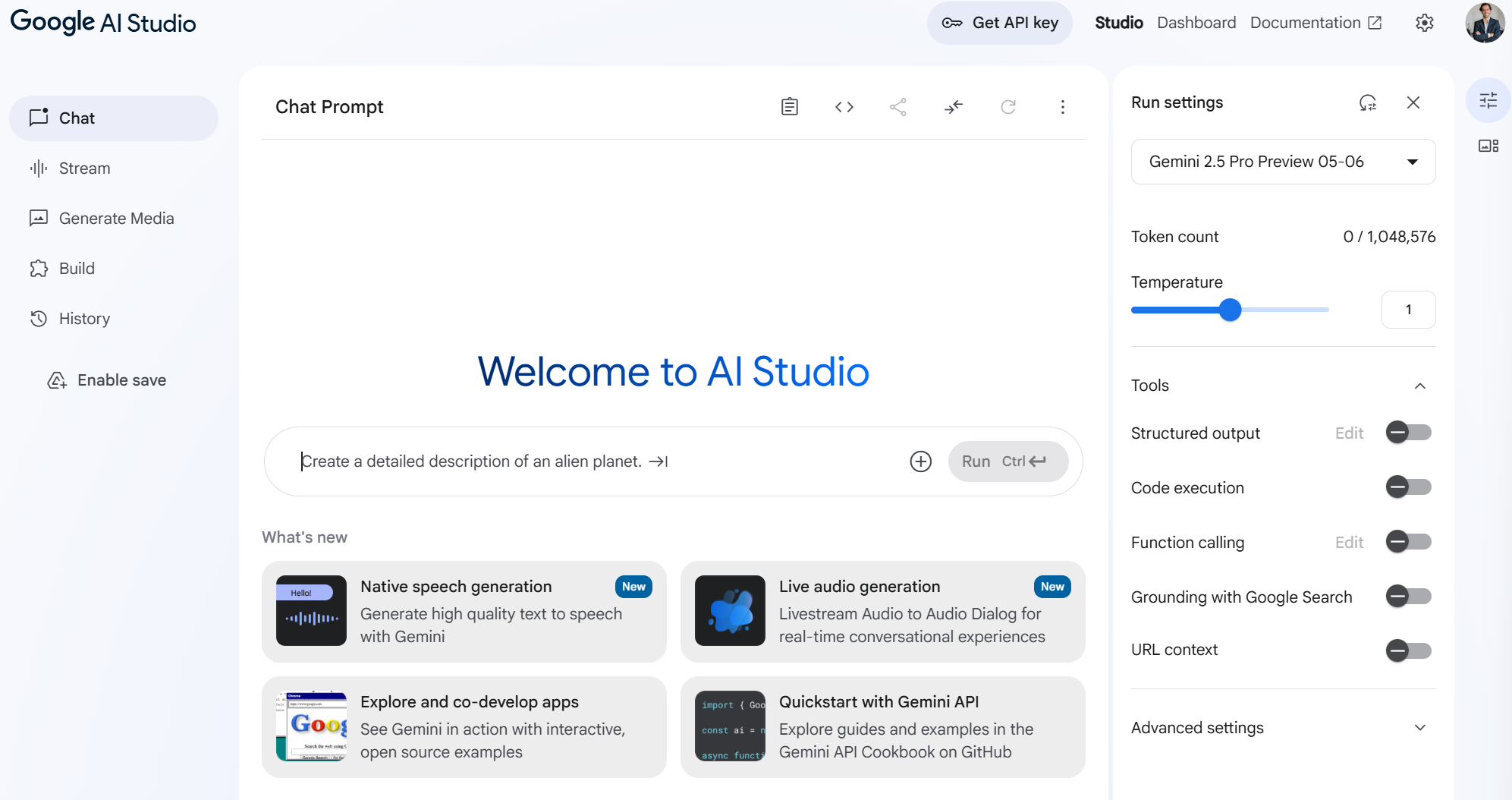

Add comment ×